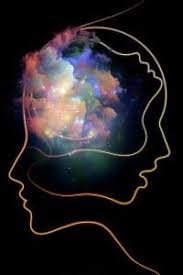In this comprehensive guide, we will be discussing the basics of Integrative Psychotherapy. This therapy is a holistic approach that helps patients to identify and resolve personal issues that are contributing to their distress and suffering. We will also be providing you with information on how to find a therapist who practices integrative psychotherapy, as well as tips on how to effectively engage in therapy.
Contents
- 1 What is Integrative Psychotherapy?
- 2 History of Integrative Psychotherapy
- 3 Types of Integrated Psychotherapy
- 4 Theories of Integrated Psychotherapy
- 5 Goals of Integrated Psychotherapy
- 6 Therapeutic Processes in Integrated Psychotherapy
- 7 Relationship Building in Integrated Psychotherapy
- 8 Collaborative Practice in Integrated Psychotherapy
- 9 Ethics in Integrative Psychotherapy
- 10 Conclusion
What is Integrative Psychotherapy?

Integrative psychotherapy is a type of therapy that aims to help people with a wide range of issues. The goal of this therapy is to help people work together with their therapist to find solutions for their problems. This therapy can be used to treat a variety of issues, including anxiety, depression, and stress.
Integrative psychotherapy also tries to take into account the person’s unique background and experiences. This means that the therapist will not just focus on the problem at hand, but will also look at how the problem has affected the person’s overall life.
The benefits of integrating psychotherapy into your treatment plan are numerous. First, it allows you to treat a wider range of issues in one session. This can make it easier for you to get relief from your symptoms. Second, integrating psychotherapy can help you connect with other parts of your life. By working on all aspects of your life, you may be more likely to find solutions to your problems. If you’re looking for a new type of therapy that can help you resolve some of your problems, integrative psychotherapy may be the right choice for you.
History of Integrative Psychotherapy
Integrative psychotherapy (IP) is a relatively new form of therapy that began to gain popularity in the late 1990s. IP is a combination of different types of therapies, including cognitive-behavioral therapy (CBT), interpersonal therapy (IPT), and psychoanalysis. Sometimes IP therapists believe that all forms of therapy can work together to help people improve their lives.
IP was developed by German psychiatrist Hans-Ulrich Rindoff-Thiessy in the 1970s and 1980s. He believed that different forms of therapy could work together to help people better understand and manage their symptoms. Rindoff-Thiessy also believed that IP could be used to treat disorders outside of the traditional mental health field, such as stress, anxiety, and pain.
Since its inception, IP has been used to treat a variety of disorders. IP has been successful in treating several different disorders, including depression, anxiety, bipolar disorder, panic disorder, post-traumatic stress disorder (PTSD), addiction, and schizophrenia.
Integrative psychotherapy is a relatively new form of therapy that began to gain popularity in the late 1990s. IP is a combination of different types of therapies, including cognitive-behavioral therapy (CBT), interpersonal therapy (IPT), and psychoanalysis. Also, IP therapists believe that all forms of therapy can work together to help people improve their lives.
IP was developed by German psychiatrist Hans-Ulrich Rindoff-Thiessy in the 1970s and 1980s. He believed that different forms of therapy could work together to help people better understand and manage their symptoms. Rindoff-Thiessy also believed that IP could be used to treat disorders outside of the traditional mental health field, such as stress, anxiety, and pain.
Since its inception, IP has been used to treat a variety of disorders. IP has been successful in treating several different disorders, including depression, anxiety, bipolar disorder, panic disorder, post-traumatic stress disorder (PTSD), addiction, and schizophrenia.
Types of Integrated Psychotherapy

Integrative psychotherapy is a type of therapy that integrates different techniques and therapies to help patients achieve better mental health. The different types of integrated psychotherapy include:
1. Cognitive-behavioral therapy (CBT) is a type of psychotherapy that helps people change their thoughts and behaviors to improve their mental health. CBT focuses on identifying and changing the thoughts that cause problems, as well as teaching people how to behaviors that can support healthy mental health.
2. Mindfulness-based cognitive therapy (MBCT) is a type of mindfulness-based intervention that is effective in treating depression and anxiety. MBCT teaches people how to focus on their thoughts and feelings, observe their environment, and accept & cope with difficult emotions.
3. Sensorimotor psychotherapy (SMP) is a type of therapy that focuses on the body and its sensations. SMP teaches patients how to experience their body-mind in a more holistic way, which can help them feel more connected to their emotions and physical sensations.
4. Transpersonal psychology integrates aspects from different schools of thought such as Jungian psychology, depth psychology, self-psychology, existential phenomenology, and spiritual psychology. Transpersonal therapy helps patients explore their personal beliefs and how they affect their mental health.
Theories of Integrated Psychotherapy
Integrative psychotherapy is a type of psychotherapy that incorporates elements of both cognitive and behavioral therapies. This therapy is based on the idea that mental health problems can be caused by problems with both cognitive and behavioral processes. To treat someone with integrated psychotherapy, the therapist must be familiar with all of the different theories of psychotherapy and be able to incorporate them into the treatment plan.
The four main theories of integrated psychotherapy are:
- The cognitive theory of therapy argues that mental disorders are caused by abnormal thoughts and behaviors.
- The behaviorist theory of therapy believes that unhealthy behaviors are a result of learned responses.
- The humanistic theory of therapy believes that people have intrinsic value and can change for the better even if they do not have psychiatric symptoms.
- The interpersonal theory of therapy focuses on the role of relationships in mental health.
Each theory has its strengths and weaknesses, which the therapist must take into account when designing a treatment plan. For example, the humanistic theory emphasizes the role of emotions in mental health but does not focus as much on cognitive processes. The behaviorist theory is more focused on cognitive processes but does not take into account emotions or relationships.
Goals of Integrated Psychotherapy

Integrative psychotherapy is a type of therapy that uses a variety of techniques to help people change their behavior and emotions. The goals of integrated psychotherapy are to:
Help people understand how their thoughts and feelings affect their behavior
One of the most common goals of integrated psychotherapy is to help people understand how their thoughts and feelings affect their behavior. This understanding can help them change their behavior in a way that is healthy and sustainable.
Help people develop new, healthier ways of thinking and behaving
Another common goal of integrated psychotherapy is to help people develop new, healthier ways of thinking and behaving. This may involve learning new coping mechanisms or changing the way they look at difficult life experiences.
Help people feel better emotionally and reduce stress
Integrative psychotherapy can also help people feel better emotionally and reduce stress. This can be done through different techniques, such as providing support, teaching relaxation exercises, or helping people develop a positive self-image.
Help them change their behaviors and attitudes
Many integrated psychotherapy techniques are designed to help people change their behaviors and attitudes. This may involve changing the way they think about themselves or their experiences, or changing the ways they interact with others.
Help them maintain changes in their behavior and emotions
There is often a goal of helping people maintain the changes they make in integrated psychotherapy. This may involve learning new skills and strategies for coping with stress, managing emotions, and engaging in healthy social activities.
Help them cope with the challenges life throws at them
It may be difficult for people to change their behaviors and emotions on their own. integrative psychotherapy can help them deal with the challenges life throws at them. This may involve receiving support during difficult periods, learning how to identify and manage triggers, or developing healthy coping mechanisms.
Therapeutic Processes in Integrated Psychotherapy
Integrative psychotherapy is a form of therapy that integrates different therapeutic approaches to help patients achieve their goals. It seeks to address the whole person, rather than just a specific problem or symptom. The therapist will typically use a combination of therapies, such as talk therapy, Cognitive-Behavioral Therapy, and Mindfulness-Based Stress Reduction.
The therapeutic process in integrated psychotherapy is typically gradual and interactive. The therapist will work with the patient to identify their goals and challenges, and then create a plan of action that will help them reach those goals. This plan will often include both individual and group therapy sessions.
Integrative psychotherapy is an effective treatment for a variety of conditions, including anxiety disorders, depression, stress management issues, addiction, and relationship problems. It is also well-suited for people who are reluctant to try traditional therapies or who want to try several different approaches to find the best fit for them.
If you are interested in integrated psychotherapy, please contact our office for more information. We would be happy to discuss your individual needs and see if integrated psychotherapy is the right treatment for you.
Relationship Building in Integrated Psychotherapy

Integrative psychotherapy is a holistic approach that blends cognitive behavioral therapy, interpersonal therapy, and psychodynamic therapy. The goal of this type of therapy is to help patients identify and address issues that are causing distress in their lives. Relationship building is a critical aspect of integrative psychotherapy, as it helps patients build positive relationships with others.
One of the most important aspects of relationship building in integrative psychotherapy is establishing trust. Patients must trust that their therapist will help them explore and resolve their issues. In addition, therapists must be able to build trust with their patients by demonstrating consistency and empathy. Finally, therapists must be able to provide support and encouragement to their patients throughout the process.
Therapists need to create an environment that is comfortable for both the therapist and the patient. This way, patients can open up about their issues and feel safe being vulnerable with their therapist. Therapists should also make sure to listen carefully to what patients are saying, without judgment. This allows patients to feel heard and understood.
Building relationships with patients is an essential part of integrative psychotherapy. By understanding how relationship building works in this type of therapy, therapists can help their patients achieve lasting change.
Collaborative Practice in Integrated Psychotherapy
Integrative psychotherapy is a comprehensive approach that integrates different techniques and modalities to help clients achieve positive changes in their lives. It is a collaborative practice that involves the therapist and clients working together to find solutions to problems.
Integrative psychotherapy is based on the idea that people can best achieve positive change when they work together with the therapist. This therapy is often used to treat a variety of issues, such as anxiety, stress, depression, and addiction. It is an effective treatment option for clients who have difficulty accessing traditional forms of therapy.
The benefits of integrative psychotherapy include improved mental health outcomes, increased communication skills, and increased self-awareness. Clients also tend to feel more empowered and self-sufficient after completing this type of therapy.
If you are interested in starting or continuing your journey into integrative psychotherapy, be sure to consult with a qualified therapist. Many different types of therapists can offer you the best possible care.
Ethics in Integrative Psychotherapy
Integrative psychotherapy is a unique and comprehensive form of therapy that incorporates various methods from different fields of psychology. It aims to provide a holistic treatment plan that takes into account the entire person. However, some ethical considerations should be taken into account when practicing integrative psychotherapy.
One of the main ethical considerations when practicing integrative psychotherapy is the therapist’s relationship with their patients. It is important to maintain a professional and confidential relationship with patients while providing them with personalized care. Additionally, therapists must ensure that their treatments are safe and effective for their patients.
Another important ethical consideration when practicing integrative psychotherapy is the use of medications and other treatments. Patients should be informed about any treatments that they are receiving and should have the opportunity to consent to these treatments. Furthermore, therapists must keep track of any side effects associated with medications and treatments and report any potential problems to their patients.
Lastly, therapists should take into account the cultural context in which their patients live. Cultural considerations can play an important role in how people approach problems and manage emotions. Therapists should consider the cultural context when providing treatment recommendations and consultations.
Conclusion
Integrative psychotherapy is a type of therapy that focuses on the whole person. The therapist takes into account all aspects of the person’s life, including their physical and emotional health, mental well-being, relationships, work and financial issues, and spiritual growth. This comprehensive guide will teach you everything you need to know about integrative psychotherapy so that you can make an informed decision about whether this type of therapy is right for you.
Hope this article was of help to you! If you are suffering from mental health disorders, you may seek help from Therapy Mantra. We have a team of highly trained and experienced therapists who can provide you with the tools and skills necessary for overcoming mental health disorders. Contact us today to schedule an online therapy or download our free Android or iOS app for more information.


